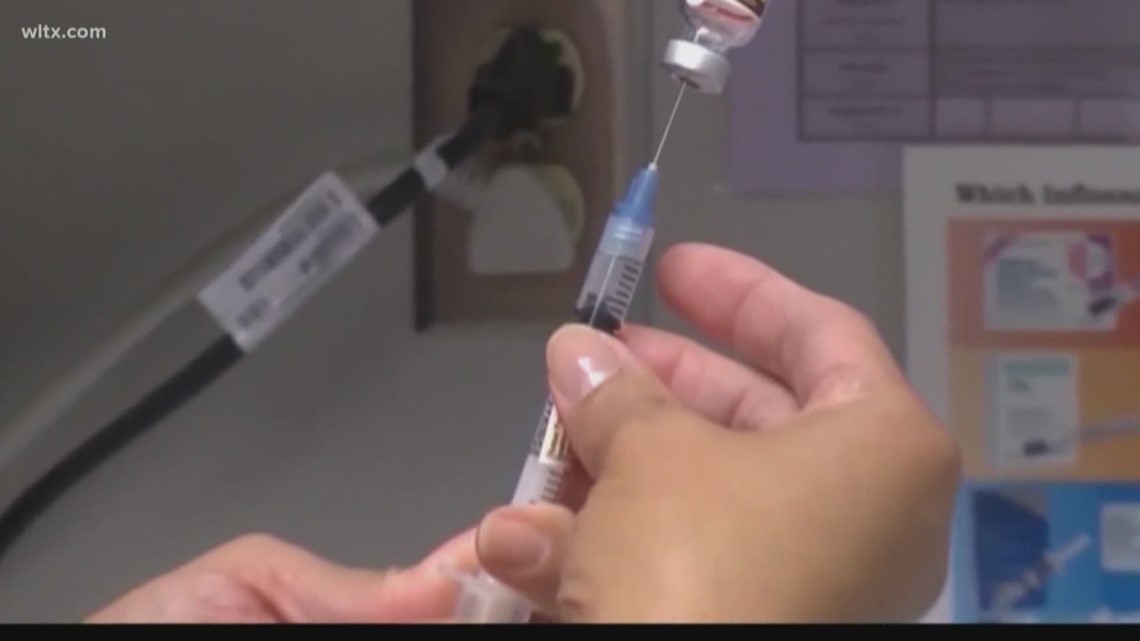COLUMBIA, S.C. — The new school year started about two months ago. As imagined where there are kids there are also germs. The latest concern for some local parents is chickenpox.
How common is chickenpox?
As adults, chances are you remember the itchy blistering rash, aches and pains, fever and feeling quite miserable. According to Centers for Disease Control and Prevention (CDC), Chickenpox is a childhood disease caused by the varicella-zoster virus, although you can get it at any age.
Chickenpox used to be very common in the United States. In the early 1990s, an average of 4 million people got chickenpox, 10,500 to 13,000 were hospitalized, and 100 to 150 died each year.
Experts from the (CDC) say those numbers have declined since the chickenpox (varicella) vaccine became available in the United States in 1995. The vaccine has been proven to be the best prevention against chickenpox. Each year, more than 3.5 million cases of chickenpox, 9,000 hospitalizations, and 100 deaths are prevented by chickenpox vaccination in the United States.
They also estimate that the vaccine provides complete protection from the virus for nearly 98 percent of people who receive both recommended doses.
What are the risks of getting Chickenpox?
Anyone who has never had chickenpox or been vaccinated against it is at risk for getting sick. Some people who are vaccinated against chickenpox may still get the disease. However, it is usually milder with fewer blisters and little or no fever.
You can catch the chickenpox virus by being in the same room with someone who is infected. This happens because Chickenpox is passed from person-to-person by direct contact or through the air by coughing and sneezing. It can also be spread by being exposed to the fluid from the blistering rash. Once exposed, symptoms usually appear within a couple of weeks but could take as few as 10 and as many as 21 days for the rash to develop.
People who have never had chickenpox have a high chance of becoming infected when another family member in the house is infected. The illness is often more severe in adults compared to children.
Can you get chickenpox more than once?
According to doctors that is not a simple question to answer. Normally, no because the virus responsible for the disease leaves behind a powerful immune reaction preventing another bout of the disease. However repeat bouts can occur in people who had a mild case or in people with a compromised immune system.
What is the connection between Chickenpox and Shingles?
The varicella-zoster virus remains in your nerve cells after the skin infection has healed. Many years later, the virus can reactivate and resurface as shingles — a painful cluster of short-lived blisters. The virus is more likely to reappear in older adults and people who have weakened immune systems.
Ninety-nine percent of people who have had chickenpox and are at risk for shingles. This includes most people who think they haven't had chickenpox because some cases are so mild that they go unrecognized.
Only people who have had chickenpox, or the vaccine, which is a weakened form of the live virus, can get shingles. People who had the vaccine seem to be at lower risk of shingles than those who had the infection.
If you are concerned and feel you may be at risk for developing shingles, there is a FDA approved shingles vaccine available and generally offered for people over age 50.
Speak to a doctor If you suspect chicken pox. If you don't remember whether you've had chickenpox or the vaccine, a blood test can determine your immunity.
For more information: https://www.cdc.gov/vaccines/vpd/varicella/public/index.html

